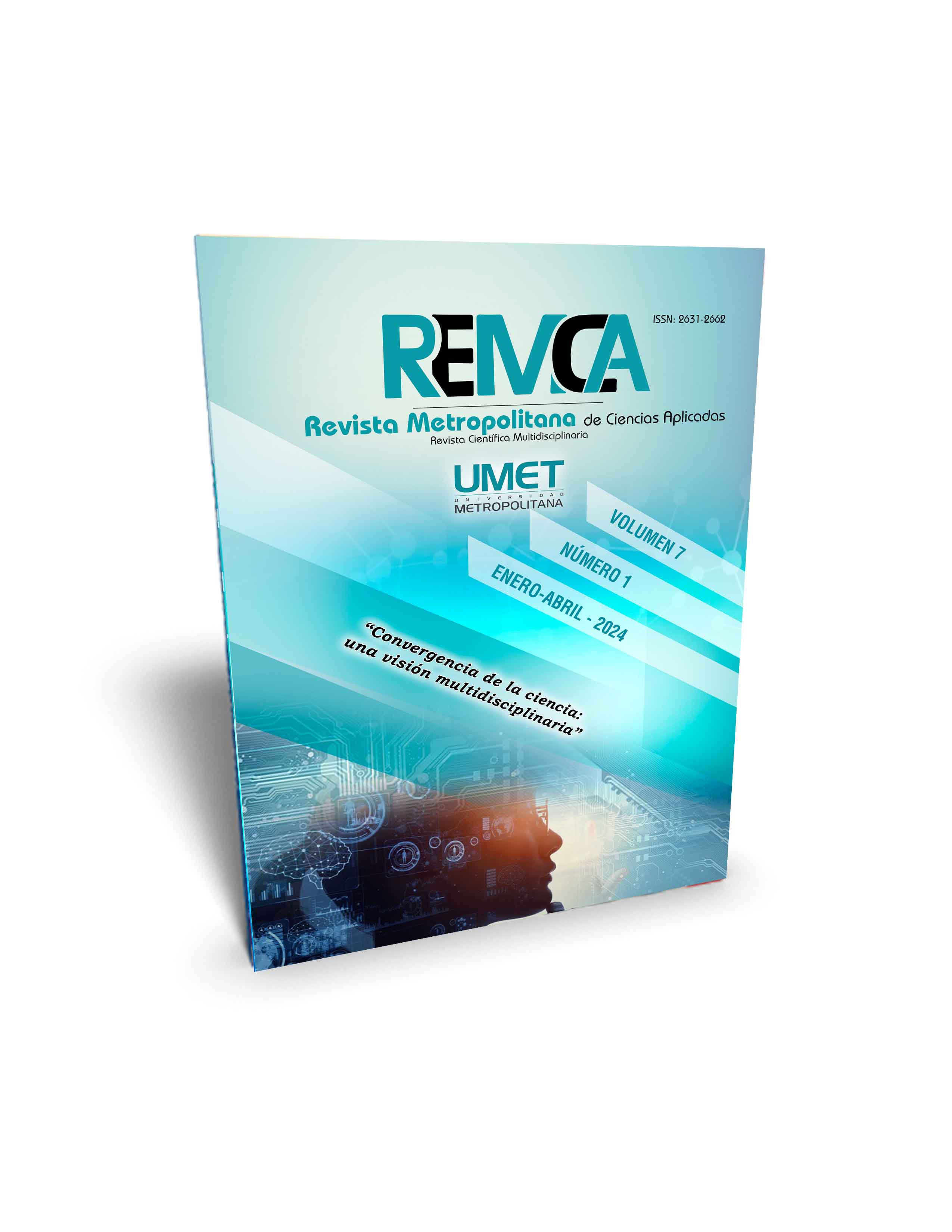El experimento como estrategia para el acercamiento al saber científico
DOI:
https://doi.org/10.62452/yx1rwz28Palabras clave:
Experimento, estrategia didáctica, enseñanza de las ciencias, saber científicoResumen
En el ámbito de los procesos formativos de las nuevas generaciones es importante concientizar a los estudiantes del papel de las ciencias y sus resultados en la vida cotidiana de las personas y en el contexto social planetario. Es por ello que la organización curricular de la Nueva Escuela Mexica apuesta a través del campo formativo saberes y pensamiento científico a fomentar la experimentación en el proceso de enseñanza y aprendizaje, por lo que es importante propiciar la comprensión del concepto de ciencia y cómo a través de la experimentación se favorece el aprendizaje del saber científico; por medio de la comprobación de fenómenos naturales y mediante el uso de diversos métodos y procedimientos que favorecen la interacción, el descubrimiento, la comprensión y adquisición de nuevos conocimientos, promoviendo el aprendizaje de saberes relacionados con la naturaleza y la sociedad en el contexto de cada grupo-clase. Todo ello condiciona la necesidad de promover nuevas formas de enseñar a aprender ciencias, y en tal sentido se resignifica el papel del docente en la organización de estrategias de enseñanza centrada en la experimentación, siendo el contexto idóneo desde el que se debe iniciar el acercamiento a la ciencia a través del método científico, como vía para favorecer y comprender los fenómenos naturales, en niñas, niños y adolescentes.
Descargas
Referencias
Astolfi, J. (2004). El "error", un medio para enseñar (1ª. Edición). SEP-Díada.
Bernal, J. (1979). Historia Social de la Ciencia, 1. Península.
Cuevas, A., Hernández, R., Leal B., & Mendoza, C. (2016). Enseñanza-aprendizaje de ciencia e investigación en educación básica en México. Revista Electrónica de Investigación Educativa, 18(3), 187-200.
García, A., & Moreno, Y. (2019). La experimentación en las ciencias naturales y su importancia en la formación de los estudiantes de básica primaria. Biografía Escritos sobre la Biología y su enseñanza, 13(24), 149-158.
Meneses, J., & Caballero, C. (2017). La metodología indagatoria en educación primaria. Una mirada desde la perspectiva del aprendizaje significativo. (Ponencia). X Congreso internacional sobre investigación en didáctica de las ciencias. Sevilla, España.
México. Secretaría de Educación Pública. (2011). Programas de Estudio 2011. Guía para el maestro. (1ra edición). Secretaría de Educación Pública.
México. Secretaría de Educación Pública. (2017). Aprendizajes Clave para la Educación Integral. Educación primaria. 4°. Plan y programas de estudio, orientaciones didácticas y sugerencias de evaluación. SEP. https://www.sep.gob.mx/work/models/sep1/Resource/10933/1/images/Aprendizajes_clave_para_la_educacion_integral.pdf
México. Secretaría de Educación Pública. (2022). Plan de Estudios 2022 (1ra edición). Dirección General de Materiales Educativos de la Secretaría de Educación Pública. SEP. https://info-basica.seslp.gob.mx/programas/departamentos-educativos-programas/plan-de-estudios-de-la-educacion-basica-2022/
México. Secretaría de Educación Pública. (2023). Un libro sin recetas para la maestra y el maestro (1ra edición). Secretaria de Educación Pública. SEP. https://libros.conaliteg.gob.mx/2023/P3LPM.htm
Ranganath, C., Gruber, M., & Gelma, B. (2014). States of Curiosity Modulate Hippocampus-Dependent Learning via the Dopaminergic Circuit. Neuron, 84, 486-496.
Real Academia Española. (2001). Diccionario de la lengua española. Espasa-Calpe.
Rivera, A. (2016). La experimentación como estrategia para la enseñanza aprendizaje del concepto de materia y sus estados. (Tesis de Maestría). Universidad Nacional de Colombia.
Descargas
Publicado
Número
Sección
Licencia
Derechos de autor 2024 Liliana Daniela Silva-Núñez, Maritza Librada Cáceres-Mesa (Autor/a)

Esta obra está bajo una licencia internacional Creative Commons Atribución-NoComercial-CompartirIgual 4.0.
Los autores que publican en la Revista Metropolitana de Ciencias Aplicadas (REMCA), están de acuerdo con los siguientes términos:
1. Derechos de Autor
Los autores conservan los derechos de autor sobre sus trabajos sin restricciones. Los autores otorgan a la revista el derecho de primera publicación. Para ello, ceden a la revista, de forma no exclusiva, los derechos de explotación (reproducción, distribución, comunicación pública y transformación). Los autores pueden establecer otros acuerdos adicionales para la distribución no exclusiva de la versión de la obra publicada en la revista, siempre que exista un reconocimiento de su publicación inicial en esta revista.
© Los autores.
2. Licencia
Los trabajos se publican en la revista bajo la licencia de Atribución-NoComercial-CompartirIgual 4.0 Internacional de Creative Commons (CC BY-NC-SA 4.0). Los términos se pueden consultar en: https://creativecommons.org/licenses/by-nc-sa/4.0/deed.es
Esta licencia permite:
- Compartir: copiar y redistribuir el material en cualquier medio o formato.
- Adaptar: remezclar, transformar y crear a partir del material.
Bajo los siguientes términos:
- Atribución: ha de reconocer la autoría de manera apropiada, proporcionar un enlace a la licencia e indicar si se ha hecho algún cambio. Puede hacerlo de cualquier manera razonable, pero no de forma tal que sugiera que el licenciador le da soporte o patrocina el uso que se hace.
- NoComercial: no puede utilizar el material para finalidades comerciales.
- CompartirIgual: si remezcla, transforma o crea a partir del material, debe difundir su creación con la misma licencia que la obra original.
No hay restricciones adicionales. No puede aplicar términos legales ni medidas tecnológicas que restrinjan legalmente a otros hacer cualquier cosa que la licencia permita.




